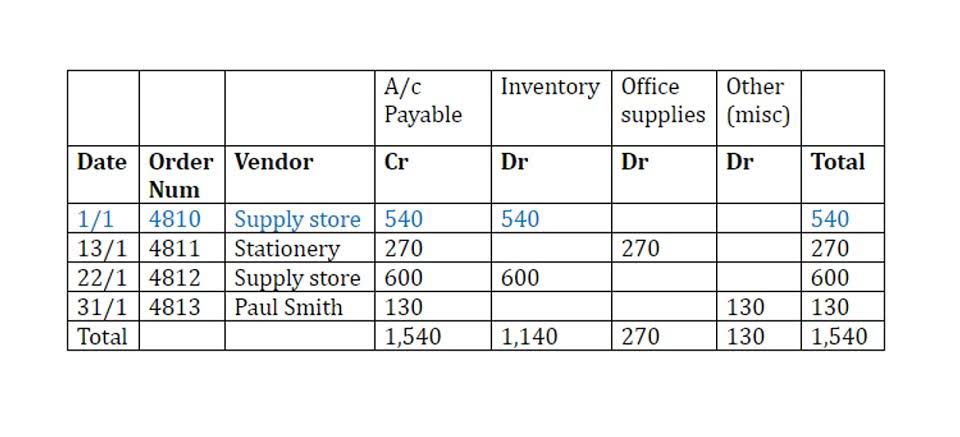Guide: What is cloud accounting and what are the benefits?

This flexibility allows businesses to maintain high levels of efficiency even as their needs evolve. Ultimately, enhanced automation in cloud-based accounting will redefine how companies manage their finances, leading to smarter and more agile operations. As the demand for real-time financial data grows, cloud accounting software will evolve to provide more robust features that support decision-making. This shift will enable businesses to respond swiftly to market changes, thereby improving their competitive edge in an ever-evolving landscape.
- With enhanced security measures and reduced maintenance, businesses can experience significant cost savings and streamlined processes.
- A software provider can even offer a mobile app, making it easier to access your numbers while you’re on the go.
- As businesses continue to seek efficiencies and cost savings, the adoption of cloud-based accounting solutions is on the rise.
- Reputable cloud service providers employ advanced encryption techniques, firewalls, and security protocols to safeguard sensitive information.
- AI and machine learning can automate repetitive accounting tasks, such as data entry and bank reconciliation, freeing up time for finance teams to focus on more strategic activities.
What Is Cloud-Based Accounting Software?
Many people still use traditional methods to keep track of their finances, but the cloud is changing that. Cloud-based Accounting software can revolutionize your bookkeeping and provide efficient financial administration; it lets you see in real-time what’s happening with critical numbers. The accounts receivable and finance teams, as well as other distant teams or branches, can access the same vital data and financial records. It is always more efficient and cost-effective when everyone is on the cloud accounting meaning same page.
- If you use online banking, then you’re already primed to use cloud accounting.
- On track for 90% automation by 2027, HighRadius is driving toward full finance autonomy.
- With real-time data access, multiple users can work simultaneously, ensuring that everyone stays on the same page.
- Additionally, cloud accounting provides enhanced security measures to protect your financial data.
- From the smallest downtown laundromat to the largest Fortune 500 company, your business can benefit from implementing cloud accounting.
Benefits of cloud accounting software

Choosing the right cloud accounting software plays a crucial role in this process. NerdWallet experts have reviewed over 250 products, leveraging 95+ years of combined experience. Remote servers store data securely, while automated processes minimize errors. Data loss, data privacy, and accidental exposure of credentials are the biggest cloud security concerns. However, cloud-based accounting software is often more secure than traditional methods.
What is Business Management? Types, Fuctions, Benefits and Skills
Fortunately, major cloud accounting providers such as QuickBooks Online allow seamless transition from older, traditional desktop based solutions. The data entered into the cloud platform is automatically synced across all devices and users, ensuring that everyone is working with the most up-to-date financial information. Additionally, cloud-based accounting automates tasks like bank reconciliation, generating financial reports, and managing accounts payable/receivable, saving businesses time and reducing human error. You can easily and securely share your data with your accountant and other financial advisers through cloud accounting software. This cloud platform allows you to grant access to your accounts to permitted users in real-time. Traditional accounting software is also costly to maintain especially when you need to keep large backups.
phone Sales & Support:
Cloud accounting represents a shift from how firms have traditionally deployed their software solutions. In a traditional on-premise implementation, software is installed on local computers or servers at a firm’s offices. All the data processing and storage takes place recording transactions on-site, meaning accountants must be physically present or have a secure connection to the office to access the software. It also means the firm is responsible for buying, maintaining, upgrading and securing its own servers and software. Accounting software on the cloud can serve as the foundation for conducting your company on the cloud.

Next Up In Business

Cloud accounting lets you skip the hassle and access your accounts straight from your web browser or mobile app. It’s simplicity at its finest, https://www.bookstime.com/ freeing you from IT headaches and ensuring smooth sailing ahead. Cloud-based accounting delivers cost-efficiency in various aspects of financial accounting. It’s an invaluable asset for businesses that prefer maximum productivity without having to worry about tight budgets. Finally, find accounting software that integrates seamlessly with other business software. As your company grows, it might be necessary to integrate multiple types of software to scale the business.
